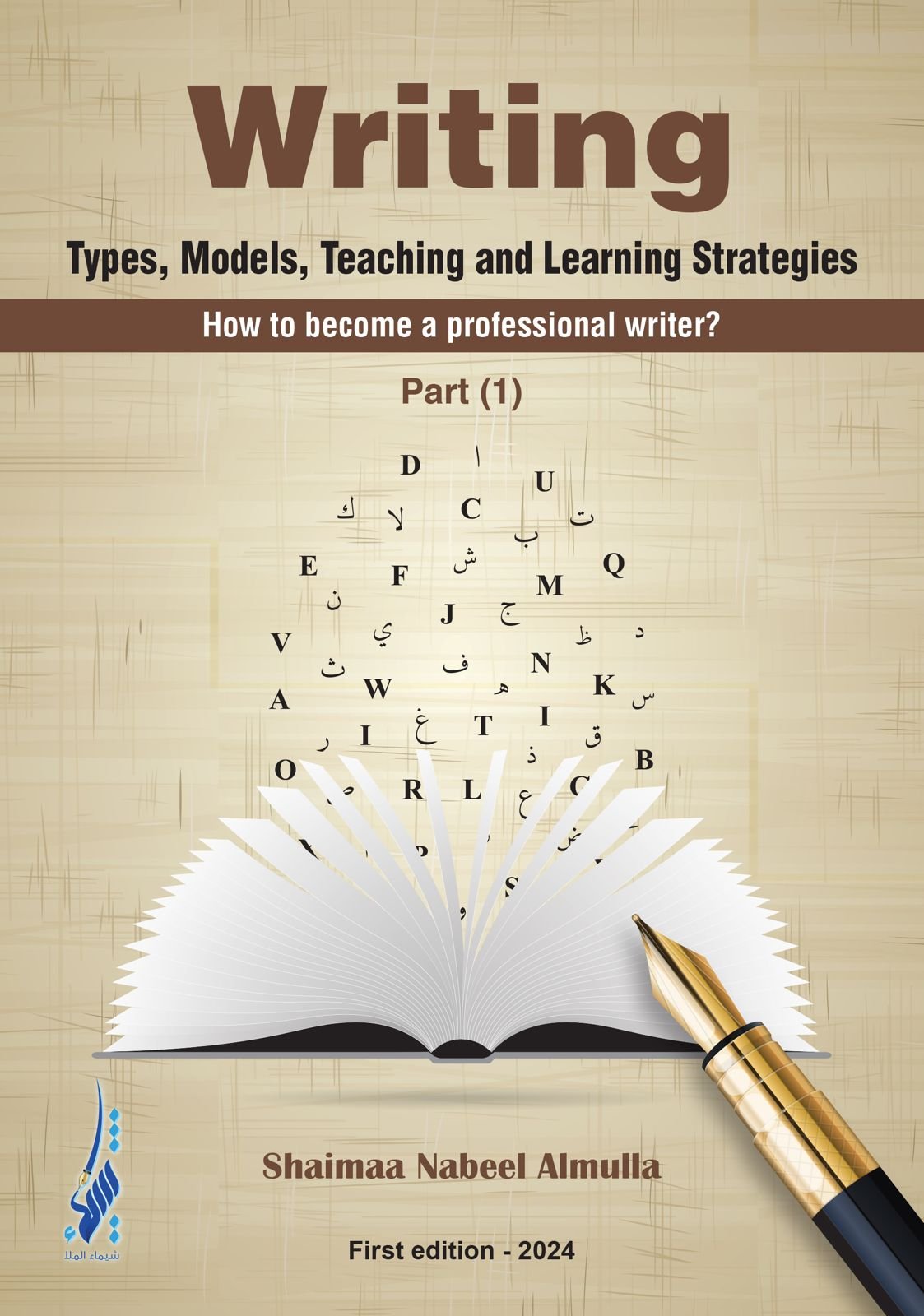Writing 2
Writing types, forms, and purposes vary in different contexts, whether educational, academic, business, media, fiction, or non-fiction. Students, scholars, employees, authors, and ordinary people write, but each has different purposes and different types of writing. Moreover, each type of writing has specific principles, rules, formats, techniques, vocabulary, and skills that distinguish it from others. For example, academic writing differs from creative, functional, fictional, and non-fictional writing. However, all these types require high-order complex thinking skills, training, and practice. Therefore, those who want to be professional writers must work to develop their skills and abilities in the field in which they write. The idea of this book is to provide an overview of different types of writing with some practical applications for teachers and learners.
- Shaimaa Al Mulla
-
2024
- English & Arabic
About the Book
Writing types, forms, and purposes vary in different contexts, whether educational, academic, business, media, fiction, or non-fiction. Students, scholars, employees, authors, and ordinary people write, but each has different purposes and different types of writing. Moreover, each type of writing has specific principles, rules, formats, techniques, vocabulary, and skills that distinguish it from others. For example, academic writing differs from creative, functional, fictional, and non-fictional writing. However, all these types require high-order complex thinking skills, training, and practice. Therefore, those who want to be professional writers must work to develop their skills and abilities in the field in which they write.
The idea of this book is to provide an overview of different types of writing with some practical applications for teachers and learners.

